(R508) Think, Then Write: Criterion-Referenced Writing Assessment/Screener + Scoring Checklist
$40.00 including GST
Within any class, writing skills vary widely – even into high school. To tailor writing support to each student, and to figure out quickly where a student is at with their writing skills, we’ve developed this short criterion-referenced assessment tool.
Starting with simple, compound, and complex sentences, we then screen writing skills with short answer questions using high-frequency academic verbs (e.g. describe, outline and explain). Next we step-up to questions requiring paragraph-length answers and verbal reasoning. Finally, we look at students’ narrative writing skills.
This no-prep 35-page screener is designed to elicit several writing samples. In addition to screening sentence, paragraph and short text composition skills, the multiple samples elicited enable you to comment on overall cohesion, patterns of spelling and punctuation errors, as well as handwriting. We’ve chosen topics that don’t require specific technical knowledge to control for background knowledge and are relatively age-neutral.
We’ve also included a 13-page Scoring Checklist (Google Form) so you may score your students’ results.
Description
To succeed at school and, later, in life, children need to explain things in writing. But many students have problems expressing their ideas in writing. This is a problem at school – writing skills are essential for good exam results across the curriculum (even in STEM subjects). Poor writing is an even bigger obstacle in the workplace, with professional email, social media and report-writing skills key to advancing in many careers.
When children learn to write well, they:
-
- get better at comprehending and producing sentences with complex grammar;
- learn to organise, structure, sequence and express their thoughts logically; and
- learn to improve their study skills.
Writing isn’t biologically natural: everyone needs to learn how to do it, and some students need lots of help to do it well. As with reading, many students benefit from explicit instruction in writing, starting with writing basic sentence structures. (If you can’t write a complex sentence, you’ll struggle to write a decent paragraph, much less a well-reasoned essay, explanation or story.)
Within any class, writing skills vary widely – even into high school. To tailor writing support to each student, and to figure out quickly where a student is at with their writing skills, we’ve developed this short criterion-referenced assessment tool.
What’s included:
Starting with simple, compound, and complex sentences, we then screen writing skills with short answer questions using high-frequency academic verbs (e.g. describe, outline and explain). Next we step-up to questions requiring paragraph-length answers and verbal reasoning. Finally, we look at students’ narrative writing skills.
This no-prep 35-page screener is designed to elicit several writing samples. In addition to screening sentence, paragraph and short text composition skills, the multiple samples elicited enable you to comment on overall cohesion, patterns of spelling and punctuation errors, as well as handwriting. We’ve chosen topics that don’t require specific technical knowledge to control for background knowledge and are relatively age-neutral.
We’ve also included a 13-page Scoring Checklist (Google Form) so you may score your students’ results.
Think, Then Write Explicit Writing Program
If you haven’t done so already, please check out our workbooks in our Think, Then Write Explicit Writing Program:
-
- Think, Then Write Workbook 1: Simple Sentences
- Think, Then Write Workbook 2: FANBOYS Compound Sentences
- Think, Then Write Workbook 3: Complex Sentences
- Think, Then Write Workbook 4: Paragraph Writing Foundations
- Think, The Write Workbook 5: Multi-Paragraph Information Report Writing Foundations
- Think, Then Write Workbook 6: Narrative Writing Foundations
- Think, Then Write Workbook 7: Persuasive Writing Foundations

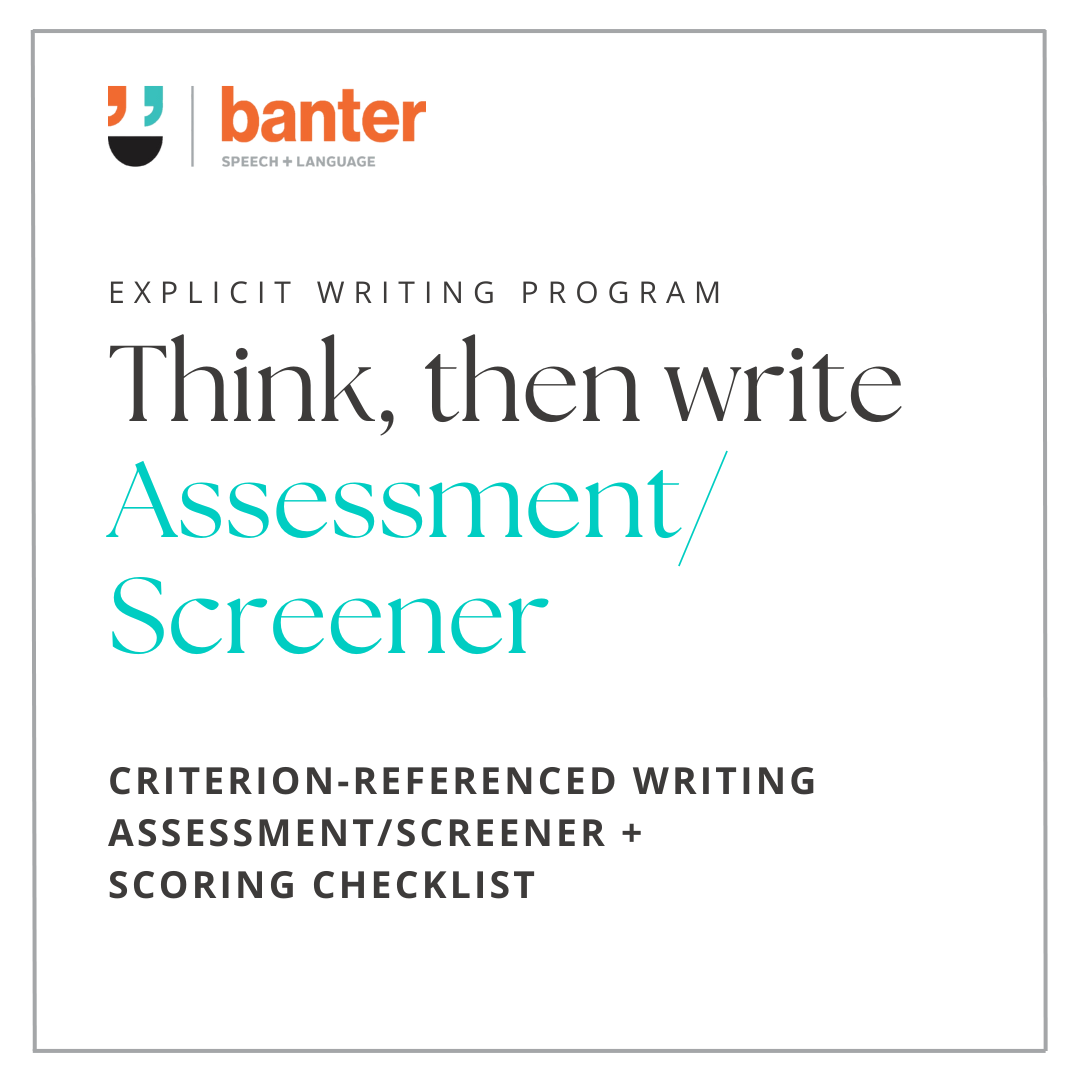





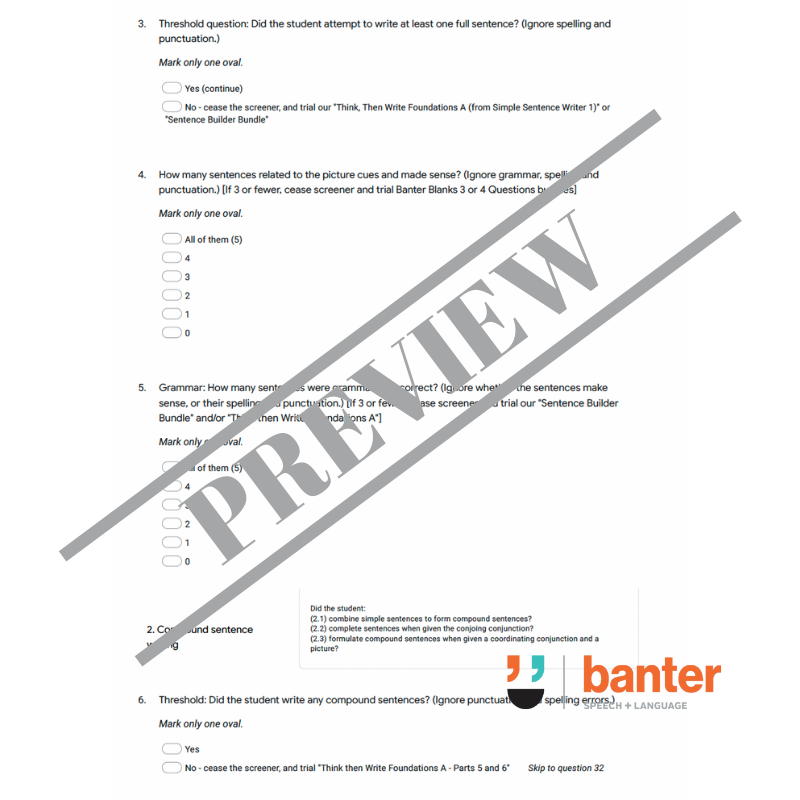

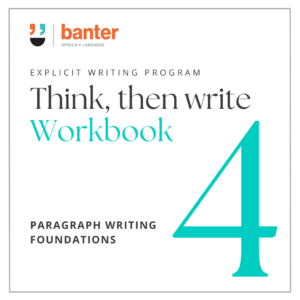
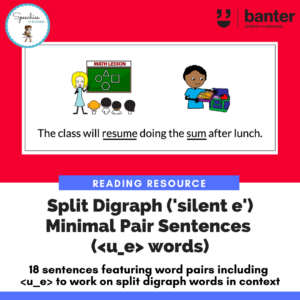

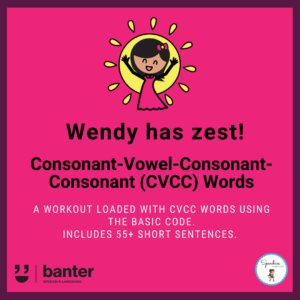
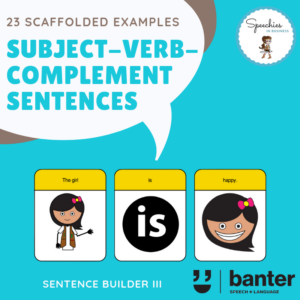 (L128) Subject-Verb-Complement (SVC) Sentence Builders
(L128) Subject-Verb-Complement (SVC) Sentence Builders 
Reviews
There are no reviews yet.